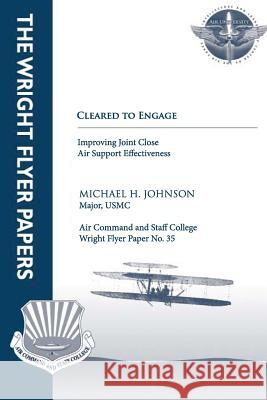Cleared to Engage: Improving Joint Close Air Support Effectiveness: Wright Flyer Paper No. 35 » książka
Cleared to Engage: Improving Joint Close Air Support Effectiveness: Wright Flyer Paper No. 35
ISBN-13: 9781479200214 / Angielski / Miękka / 2012 / 40 str.
The importance of close air support (CAS) has markedly increased over the last five years in Operations Enduring Freedom and Iraqi Freedom. Ground forces have increasingly relied on the effects that airpower provides and will continue to do so in the foreseeable future. This has occurred while CAS doctrine and execution have undergone radical changes. While the fundamentals of a serviceperson with a radio calling in air support have remained relatively constant since World War II, the level of mission complexity has steadily increased. Digital communications, precision-guided munitions, collateral damage considerations, effects-based operations, and a "joint" battlefield have placed increased requirements on terminal attack controllers and CAS aircrew. CAS has been a heavily debated topic within the services for decades. CAS doctrine and training issues have affected aircraft procurement, interservice relationships, and the application and effectiveness of airpower on the battlefield. This has produced numerous Congressional inquiries and service introspection on how to "get it right." While much progress has been made since 2001, the services must continue to make CAS more effective. On the modern battlefield, the joint application of firepower is a reality, not a concept. It is time to "engage" the doctrinal and training challenges facing our services in order to increase the effectiveness of our aviation forces in the CAS arena.
Zawartość książki może nie spełniać oczekiwań – reklamacje nie obejmują treści, która mogła nie być redakcyjnie ani merytorycznie opracowana.











